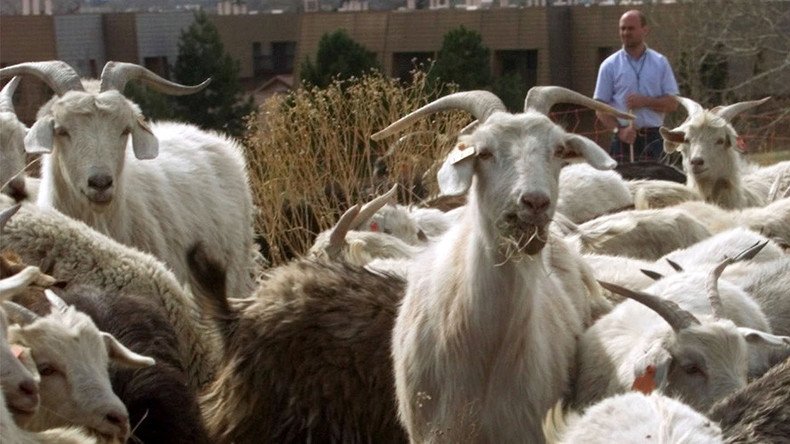The men who drop in goats: US govt spent $6m bringing 9 animals to Afghanistan

The US Department of Defense squandered $6 million airlifting rare Italian goats into Afghanistan, attempting to boost the cashmere industry there.
The Task Force for Business and Stability Operations (TFBSO) spent almost $800 million on various projects in Afghanistan over a five-year period in an attempt to bolster the war-torn economy.
John F. Sopko, Special Inspector General for Afghanistan Reconstruction (SIGAR), told a Senate hearing this week that TFBSO activities in Afghanistan were "stymied by a lack of strategy, leadership, and coordination" and many of the projects had "little-to-no chance" of actually effecting change.
‘US and NATO operation in Afghanistan has failed’ – Russian president’s special envoy
https://t.co/yqSpAMlOz5pic.twitter.com/7D0kBxiRD3
— RT America (@RT_America) December 30, 2015One such "poorly planned" project saw the task force import nine rare, blond male goats from Italy, and set up a farm and a lab to certify the wool. The goal was to "bolster the cashmere industry in Herat [Afghanistan’s third largest city]."
The failed project cost American taxpayers just over $6 million. Contractors have claimed up to 350 jobs were created in the process, but Sopko said the project’s status is unknown. He also could not say whether the goats had actually been eaten.
Sopko spoke of numerous other failed projects that were undertaken as well, including the construction of an "ill-conceived" $43 million natural gas filling station in the city of Sheberghan, near Afghanistan’s natural gas fields.
Watchdog fumes over $43m Afghan gas station, Pentagon keeps mum https://t.co/PkOLW11e3upic.twitter.com/ckMVfWLEAB
— RT America (@RT_America) November 2, 2015The task force also spent $42 million to develop a "Silicon Valley-modeled startup incubator" for businesses and $7.5 million on "carpet support," which aimed to "increase the sales of hand knotted carpets."
TFBSO claims this created nearly 10,000 carpet weaving jobs, but the report’s initial analysis questions "the veracity of this figure."
Nearly $150 million was spent "by TFBSO leadership to protect, house, and feed its personnel primarily on facilities that were not operated by the US government," for which SIGAR "has not yet found any data or documentation that analytically demonstrates the return on investment the Task Force gained."
READ MORE: Pentagon spent $150 million on luxury villas for employees in Afghanistan
"Over the past two years," Sopko said, "SIGAR has received more complaints of waste, fraud, and abuse relating to TFBSO activities than for any other organization operating in Afghanistan."
TFBSO ended its programs in Afghanistan at the end of 2014 and ceased all operations in March 2015.












